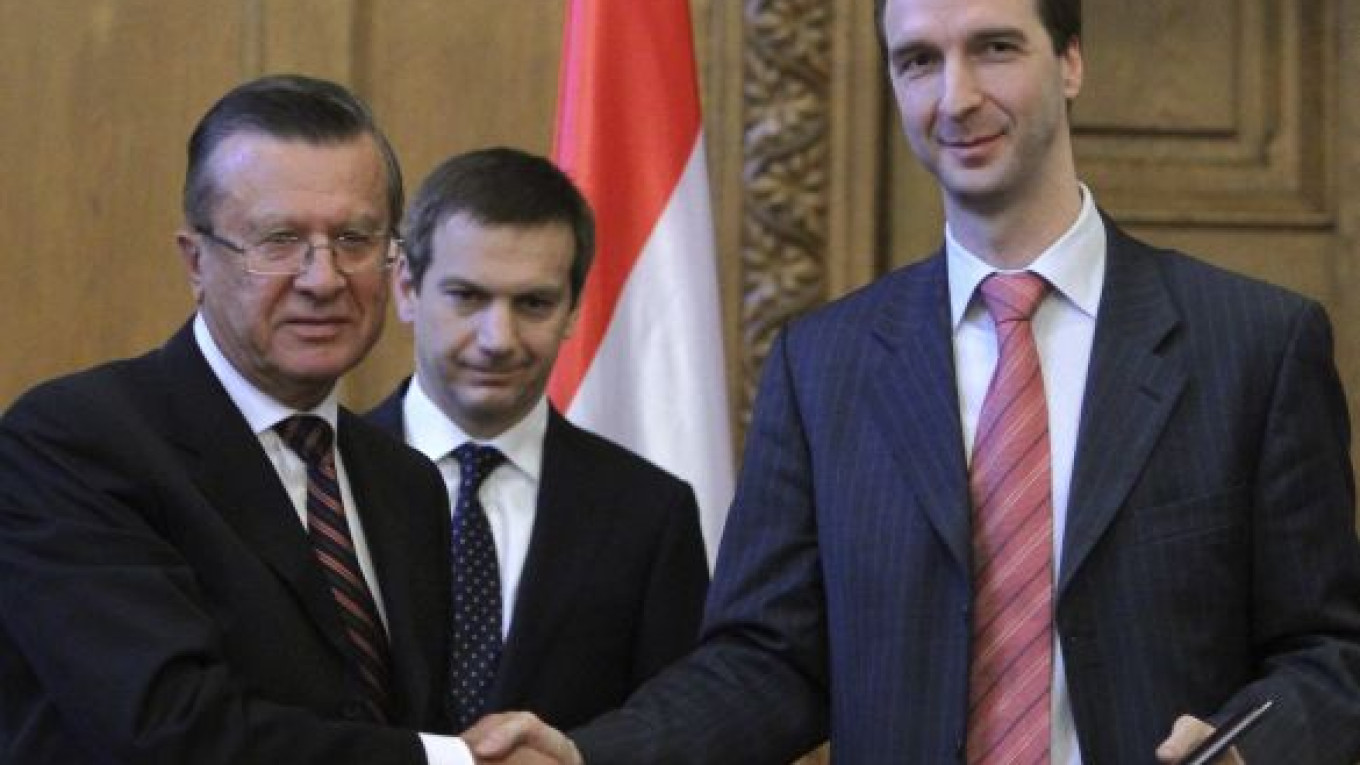BUDAPEST, Hungary — Gazprom and the state-owned Hungarian Development Bank signed a deal Friday setting up a company to develop Hungary's part of the South Stream gas pipeline project.
The agreement was signed by Gazprom deputy chief Alexander Medvedev and Hungarian Development Bank chief executive Janos Eros.
"We have no doubt that South Stream will become an extra safeguard for the reliability and flexibility for Russian gas supply to European markets," Medvedev said in a statement posted on Gazprom's web site.
The deal was completed during a visit to Hungary by First Deputy Prime Minister Viktor Zubkov, who took part in a session of a committee promoting economic cooperation between the two countries.
The agreement is considered another step in Russia's efforts to consolidate its position as Europe's primary gas supplier and undermine the alternative Nabucco pipeline plan, which is backed by the European Union.
Greece, Bulgaria, Serbia and Slovenia have also signed up for South Stream, while press reports in Russia have said Austria is expected to enter the deal soon.
South Stream would exit Russia under the Black Sea and enter the EU through Bulgaria. A northwest route would supply Serbia, Hungary and Austria, while another would ship gas west through Greece and into southern Italy.
Hungary joined the Russian-led project in Feb. 2008 and agreed to set up a joint venture to finance, build and operate the pipeline in Hungary.
South Stream's construction — funded chiefly by Gazprom and Italy's Eni — is planned to start this year and to be completed by 2015, carrying gas to Central and Western Europe while bypassing Ukraine.
Pricing disputes between Russia and Ukraine, a key transit country, caused gas shortages in Europe last winter.
Despite its role in South Stream, Hungary has also repeatedly insisted on its commitment to the Nabucco plan, which would deliver gas from the Caspian Sea region westward via the Caucasus, bypassing Russia, and into Bulgaria via Turkey.
A Message from The Moscow Times:
Dear readers,
We are facing unprecedented challenges. Russia's Prosecutor General's Office has designated The Moscow Times as an "undesirable" organization, criminalizing our work and putting our staff at risk of prosecution. This follows our earlier unjust labeling as a "foreign agent."
These actions are direct attempts to silence independent journalism in Russia. The authorities claim our work "discredits the decisions of the Russian leadership." We see things differently: we strive to provide accurate, unbiased reporting on Russia.
We, the journalists of The Moscow Times, refuse to be silenced. But to continue our work, we need your help.
Your support, no matter how small, makes a world of difference. If you can, please support us monthly starting from just $2. It's quick to set up, and every contribution makes a significant impact.
By supporting The Moscow Times, you're defending open, independent journalism in the face of repression. Thank you for standing with us.
Remind me later.


